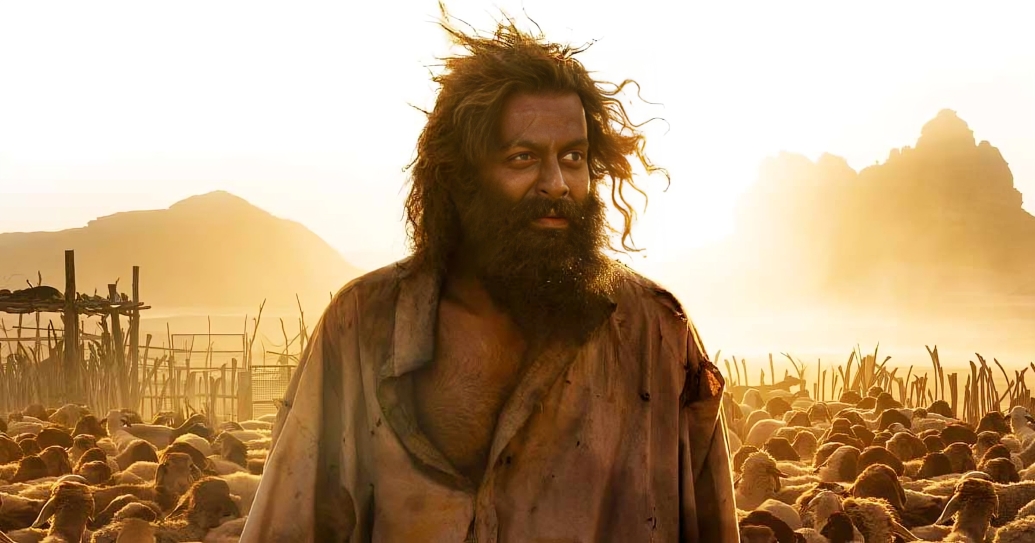Indian Film 'The Goat Life' Ignites Global Debate on Gulf Labor Practices
The Indian film industry has again tackled complex social issues with "The Goat Life", a controversial movie sparking debate about labor practices in Gulf countries, particularly Saudi Arabia. Based on a true story, the film has become a focal point for discussions on workers' rights and cultural sensitivities.
Directed by Blessy Ipe Thomas, "The Goat Life" tells the harrowing tale of Najeeb Muhammad, a young man from Kerala who travels to Saudi Arabia for a better future. His dream quickly devolves into a nightmare as he becomes trapped in a remote desert, forced to work in inhumane conditions tending to goats. The film highlights the darker aspects of the kafala sponsorship system prevalent in many Gulf countries.
Since its release on Netflix, complete with Arabic subtitles, the film has ignited controversy, particularly in Saudi Arabia and other Gulf nations. Critics argue that the movie unfairly tarnishes Saudi Arabia's image, while supporters contend that it brings necessary attention to real issues faced by migrant workers.
The depiction of the Saudi sponsor character has drawn particular ire, accused of perpetuating negative stereotypes. Omani actor Talib Al Balushi and Jordanian actor Akef Najem, who played roles in the film, have faced backlash for their participation.
Despite or perhaps because of the controversy, The Goat Life has achieved significant commercial success, grossing nearly one billion rupees (approximately $12 million USD) across India. Its impact extends beyond box office numbers, reigniting discussions about the kafala system and its potential for abuse.
The kafala system, a sponsorship-based employment framework used in several Gulf countries, has long been criticized for creating conditions that can lead to exploitation. While Saudi Arabia announced reforms to this system in 2021, critics argue that these changes have not gone far enough to protect vulnerable workers.
The film's release has coincided with increased reporting of worker abuse cases on social media, highlighting the plight of migrant workers from countries such as India, Bangladesh, Pakistan, and Ethiopia. Language barriers and lack of education often make these workers particularly vulnerable to exploitation.
Supporters of the film argue that it serves as a necessary wake-up call, pointing to numerous documented cases of worker abuse as evidence that the movie's narrative is rooted in real-world issues demanding attention and reform.
Critics, particularly in Saudi Arabia, accuse the film of pushing a biased narrative, arguing that it unfairly singles out Saudi Arabia as it works to improve its international image and prepare for hosting major global events, such as the 2034 World Cup.
The controversy surrounding "The Goat Life" underscores the power of cinema to spark important conversations about social issues. As the debate continues, it remains to be seen whether the film will lead to concrete changes in labor practices or serve primarily as a cultural flashpoint.
Regardless of one's stance, "The Goat Life" has succeeded in bringing migrant worker rights to the forefront of international discourse. As audiences engage with the film and its message, the conversation about labor practices in the Gulf region is likely to continue, potentially paving the way for further scrutiny and reform.

Lire aussi
Latest News
- 17:25 Iran's President Offers Olive Branch: Direct Talks with US on the Table
- 17:00 Unveiling the Mystery: Elon Musk's Stealth Project with Tesla
- 16:44 UK PM Starmer Seeks Immigration Strategies from Italy’s Meloni
- 16:20 Morocco: A Rising Star in Global Cybersecurity, Leading the Way in Digital Resilience
- 15:50 Unrelenting Storms Forecast: Morocco Braces for a Week of Turbulence
- 15:33 A Son's Plea: Unraveling the Motives Behind the Florida Golf Course Incident
- 15:20 Morocco's Security Measures: A Strategic Response to Migration Challenges



